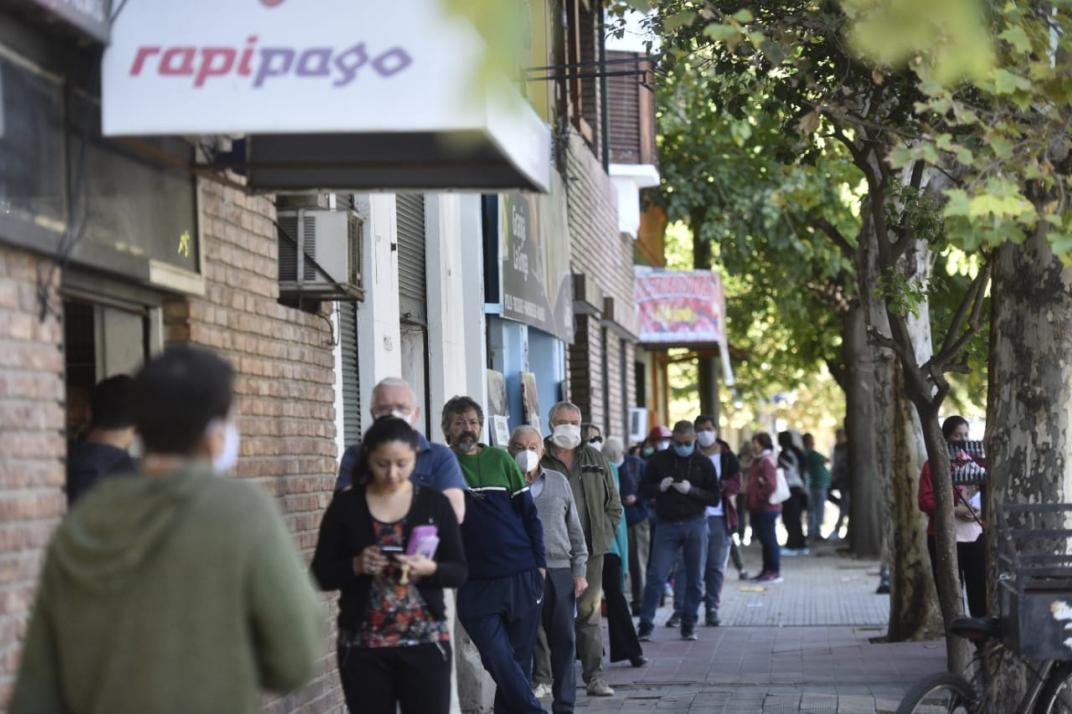It is already a habitual landscape. The first working days of each month, thousands of people, at different payment points, queue long to pay taxes and services of all kinds.
Some, the least, carry their debit card. Most face their commitments with tickets in hand.
We are so used to it that, in everyday life, it doesn’t even attract our attention; a habit that now, with the risks of the pandemic and with the limitations of quarantine, is eloquently exposed.
To the already classic lines of retirees and pensioners and of people who receive social aid in banks, we now add those formed by those who struggle to pay the due dates of taxes, services, expenses, rent or a financing plan in some business premises that mediate the collection chain, such as Rapipago or Pago Fácil, with the limitations of isolation.
In all cases, they are the cornerstones of a structural phenomenon in which at least three main causes coexist that consolidate the features of our financial culture, in which the uses and customs of cash prevail.
1. A low level of bank penetration
In Argentina, only half of the adult population is banked, which is directly related to registered work.
A 2019 report by the Association of Argentine Banks (Adeba) indicates that, between 2011 and 2017, the percentage of adults with accounts in formal entities went from 33 percent to 49 percent. But there it stagnated.
This scenario of financial inclusion deficit is the one taken advantage of by fintech to gain space in countries like ours, although its incidence is still uneven.
2. Much informality
Seen in reverse, the level of bank penetration is also linked to informality, both in terms of employment and payment methods.
In the case of the labor market, the unregistered employment rate climbs to 42.8 percent in Greater Córdoba, the highest level since 2006.
According to the Idesa consultancy, there are 215,893 informal workers, to which 161,048 self-employed workers are added in this urban agglomerate, that is, 55 percent of the total workforce.
But, beyond employment, the universe of informality extends to thousands of daily buying and selling operations, which means that millions of pesos are out of fiscal control and fuel evasion.
3. Preference for tickets
The same work by Adeba, carried out by the consulting firm Fiel, warns that 80 percent of Argentines prefer the use of cash for their payments.
“An indicator that confirms the persistence of cash payments, even among banked individuals, is the high proportion of ATM withdrawals relative to the bank deposit base,” the study indicates. The data was also validated by subsequent private surveys.
In the first 10 business days of the quarantine (it started on March 20), bills totaling 88,598 million pesos came out on the street. It’s almost 300 percent more than the total cumulative withdrawals between last January 1 and March 19.
And, although the amount of electronic payments has grown with isolation, most of them are made by people who already used this channel and who have now intensified the use of this tool.
To this are added provisions emanating from the conjuncture, such as the one referring to the payment of services and the grace period so that the provision of these in households that do not comply with the payment is not suspended.
It happens that this benefit has limits, since formal employees or monotributistas whose income exceeds 33,750 pesos, that is to say, the equivalent of two minimum wages, vital and mobile, are left out.

Corresponsal de Argentina, Encargado de seleccionar las noticias más relevantes de su interés a nuestro sitio web NewsPer.com





